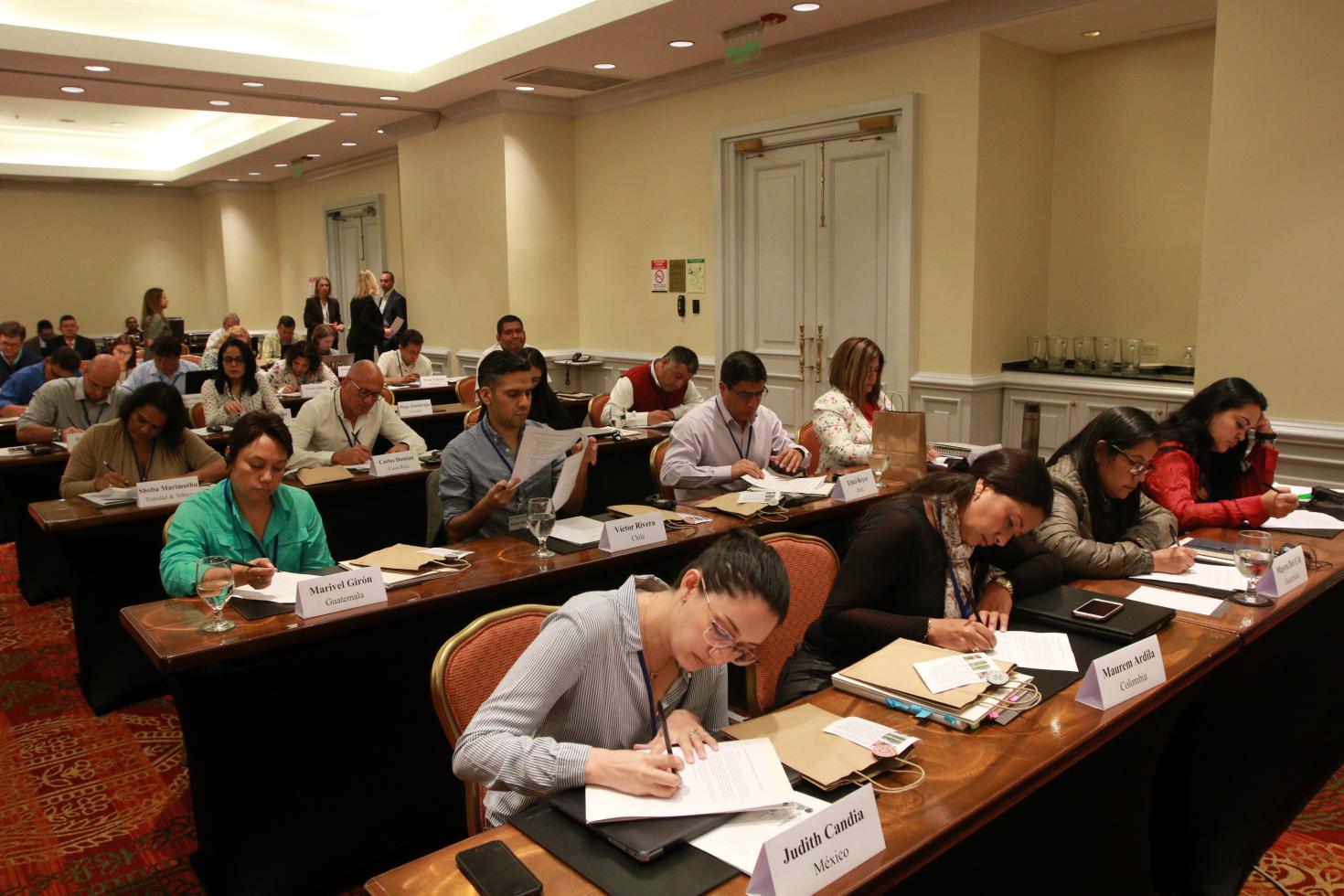Starting today, the professionals are receiving training at a regional workshop in Costa Rica, sharing expertise and information with exporters, producers and academics. The event was declared open by the United States Ambassador to Costa Rica, Sharon Day, and IICA’s Deputy Director General, Lloyd Day.

San José, Monday, 17 September (IICA). Today, more than 60 academics and public sector employees involved in the area of food safety began a training course for trainers on the Produce Safety Standard for export to the United States. The participants, who are from 13 Latin American and Caribbean countries, will attend the regional workshop in Costa Rica until Friday.
The training, which is an initiative of the Inter-American Institute for Cooperation on Agriculture (IICA) and the United States Food and Drug Administration (FDA), is the result of a cooperation agreement that is seeking to build the expertise of various representatives from LAC countries, working in areas related to the implementation of regulations of the Food Safety Modernization Act (FSMA).
Speaking at the opening of the event at the Real Intercontinental Hotel, Lloyd Day, IICA’s Deputy Director General and the United States Ambassador to Costa Rica, Sharon Day, emphasized the importance of equipping professionals in the hemisphere to provide training in their countries for producers and companies that are already exporting fresh agricultural produce to the United States market, or are about to embark on the process.
The Deputy Director General remarked that, “Historically, the United States has been one of Latin America and the Caribbean’s main food export markets, and today accounts for close to 22% of total food exports from the region. The sharing of knowledge and experience is a form of continuous learning that will allow participants to replicate the process, maintain already existing export markets and open up other potential markets, thereby assisting these countries to become more competitive”.
On the other hand, the United States Ambassador indicated that, “Food safety authorities recognize that food-borne illnesses are a burden to public health, and also threaten the economic welfare of our countries. The FSMA is changing the manner in which the United States is ensuring the security of the food supply from farm to table”.
The diplomat went on to explain that, “This workshop is focusing on preventing problems before they occur, rather than responding to them after the fact”.

The United States Food Safety Modernization Act has changed the paradigm of the country’s approach to guaranteeing the security of the food supply – from the farm to the table”.
In keeping with the regulations, exporters of fresh agricultural produce must have a supervisor or designated person on their property, who has completed FDA-approved training in food safety. This will ensure that foods that reach the tables of consumers will be safe.
The seven-module workshop will cover issues such as water for agricultural use, water for post-harvest use, health, hygiene and the training of workers, soil improvements, wildlife, domestic animals and land use, post-harvest handling and sanitation, and other food safety plans for farms.
The training will be delivered by the Joint Institute of Food Safety and Applied Nutrition (JIFSAN) and the Produce Safety Alliance (PSA).
As part of this event, participants will be provided with tools and inputs that will allow them to apply to the Produce Safety Alliance to be recognized as lead trainers, who will be authorized to train exporters, producers, academics and other stakeholders in their countries on the standard governing the safety of fresh agricultural produce.
The workshop participants are professionals from Argentina, Brazil, Costa Rica, Colombia, Chile, Ecuador, Guatemala, Honduras, Jamaica, Mexico, Nicaragua, Peru and Trinidad and Tobago.
More information:
Ana Marisa Cordero, Agricultural Health Specialist, IICA.











